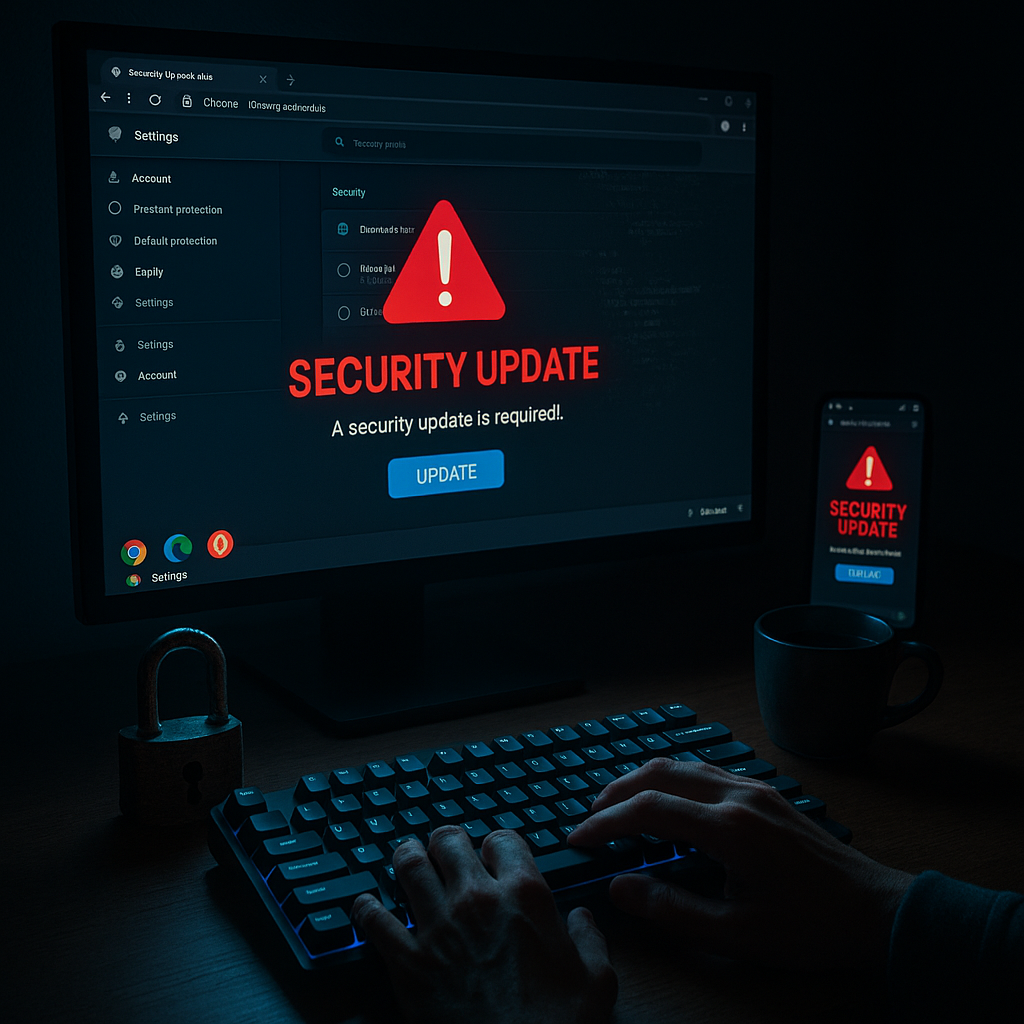Key Takeaways
- Critical browser exploit exposed: Researchers have identified a zero-day vulnerability affecting Chrome, Edge, and other Chromium-based browsers.
- Active attacks underway: Hackers have used the flaw to compromise user data before official patches were released.
- Vendors issue urgent updates: Google and Microsoft have rolled out emergency patches, urging users to update immediately.
- User action required: Experts recommend updating browsers, enabling automatic updates, and reviewing security settings without delay.
- Ongoing investigation: Security teams continue to analyze the incident and may announce additional patches or findings in the coming days.
Introduction
A critical zero-day exploit targeting popular web browsers such as Chrome and Edge was uncovered by cybersecurity researchers this week. Google and Microsoft responded by issuing emergency security updates following reports of active attacks that compromised user data. As investigations continue, users are advised to update their browsers promptly and review security settings to safeguard personal information.
What Happened
Security researchers at Google’s Threat Analysis Group discovered a severe zero-day vulnerability affecting all Chromium-based browsers, including Chrome, Edge, and Brave. The vulnerability, tracked as CVE-2023-6345, resides in the browser’s WebRTC component responsible for real-time communication.
This flaw enables attackers to execute malicious code remotely when users visit specially crafted websites. Hackers can potentially access a victim’s device with no further user interaction beyond visiting a compromised site.
Google confirmed the vulnerability after detecting active exploitation in the wild. Their security bulletin stated that targeted attacks had been ongoing since at least early November, prior to the vendors being notified.
Un passo avanti. Sempre.
Unisciti al nostro canale Telegram per ricevere
aggiornamenti mirati, notizie selezionate e contenuti che fanno davvero la differenza.
Zero distrazioni, solo ciò che conta.
 Entra nel Canale
Entra nel Canale
Zero-day vulnerabilities like this are particularly dangerous because they are exploited before security teams can detect them or develop patches. For daily digital safety, developing good cyber hygiene habits also helps reduce the risk from unknown threats.
Immediate Risks
Through this exploit, attackers can access sensitive information stored in browsers, such as saved passwords, browsing history, and cookies that could lead to session hijacking. Personal details entered into web forms may also be exposed.
Financial institutions and corporate networks have been leading targets. Security firm Mandiant reported exploitation attempts against financial, governmental, and healthcare organizations across North America and Europe.
Security measures often fail to detect zero-day vulnerabilities until they are disclosed. Users with outdated browsers remain exposed even after patches are available if updates are not applied promptly.
The discovery comes amid a measurable increase in browser-based attacks. According to the Cybersecurity and Infrastructure Security Agency (CISA), browser vulnerabilities accounted for nearly 24% of actively exploited security flaws in the past year. If you want an added layer of protection, review our picks for free antivirus apps recommended for everyday mobile security.
Browser Makers Respond
Google released an emergency Chrome update yesterday, bringing the browser to version 119.0.6045.199 for Windows and 119.0.6045.159 for Mac and Linux. Microsoft followed by issuing patches for Edge, while other vendors using the Chromium codebase are distributing similar updates.
According to Google’s security advisory, the patch was developed and deployed within 72 hours of the vulnerability’s confirmation. While most users will receive updates automatically, manual checks are recommended to ensure protection.
Browser companies have activated forced-update mechanisms to accelerate patch distribution. A Google spokesperson stated the company is treating this vulnerability with utmost seriousness due to evidence of active exploitation.
This coordinated response reflects the growing industry cooperation on urgent security matters. Mozilla, not affected by this vulnerability due to Firefox’s distinct codebase, has increased security monitoring of their WebRTC implementation as a precautionary step.
How to Stay Protected
Update your browsers immediately by manually checking for updates. In Chrome, click the three-dot menu, select Help, then About Google Chrome, and install any available updates. Other browsers offer similar update paths within their settings menus.
Restart your browser after installing updates. The patch is only activated after a full restart. Be sure to close all browser windows and relaunch the browser to ensure you are protected.
Enable automatic updates on all devices, including smartphones and tablets. Browser vulnerabilities impact all platforms, so maintaining security across devices is essential.
Consider using security-enhancing browser extensions, such as script blockers or trusted VPNs, as supplemental layers of protection. However, these tools should complement, not replace, regular browser updates. For more ways to enhance your browser, discover top browser extensions that balance privacy and productivity.
Divide your browsing activities for added security. Using separate browsers for sensitive transactions and general usage helps limit potential data exposure in the event of a compromise.
What Happens Next
CISA has added this vulnerability to its Known Exploited Vulnerabilities catalog, requiring federal agencies to patch affected systems by the end of the week. Private organizations are strongly encouraged to follow a similar schedule.
Security researchers are investigating whether similar vulnerabilities may affect additional browsers or components. The incident has prompted a broader review of WebRTC implementations throughout the industry.
Un passo avanti. Sempre.
Unisciti al nostro canale Telegram per ricevere
aggiornamenti mirati, notizie selezionate e contenuti che fanno davvero la differenza.
Zero distrazioni, solo ciò che conta.
 Entra nel Canale
Entra nel Canale
Browser vendors plan to release comprehensive post-incident reports once the current patching cycle is complete. Google has indicated that a detailed technical analysis will be published next week to support the broader security community in understanding the exploit.
Users can stay informed by following official browser security blogs and trusted cybersecurity news sources. Most browser vendors offer subscriptions to security bulletins that alert users when critical updates become available. To further protect all your online accounts, consider setting up multi-factor authentication wherever possible.
Conclusion
The prompt identification and patching of the zero-day vulnerability in Chrome underscore the importance of ongoing vigilance as browser-based threats become more frequent and sophisticated. This incident is prompting browser vendors and researchers to reevaluate WebRTC security more broadly.
What to watch: Google’s forthcoming technical analysis and CISA’s agency compliance deadline at week’s end could bring additional updates or guidance. Before closing this topic, review our essential Wi-Fi router security tips to keep your digital environment as safe as possible.





Leave a Reply